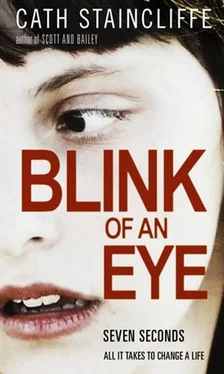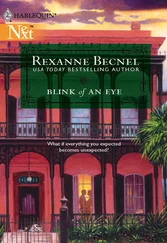To be honest, I was relieved she was not coming home. Not yet. I didn’t trust her, and the strain of watching over her would have been intolerable.
Phil and I went back and talked and wept, him making big barking noises like some seal, which tore at my heart. It was impossible to resist the impulse towards self-recrimination: I should have seen it coming, should have dragged her to the doctor, should have known! Yes, I’d realized she was getting depressed but I’d no idea that she’d been suicidal. I should have known.
‘I was thinking of Petey again,’ Phil said, his eyes watery. ‘Oh God, if you’d not gone in…’
‘But I did.’ I held his face in my hands and kissed his forehead.
We tried to put one foot in front of the other. There’s no avoiding the particularly cruel guilt that suicide or attempted suicide bestows on those who love the person involved. Like with Petey’s death, relatives and friends struggle not only with grief but a profound burden of culpability. It’s a false burden – we are not responsible for the person’s choice to end their life, we do not have the power – but on an emotional level it is very hard not to feel that we have failed in our care, in our love. That if we’d only been better, stronger, wiser, more worthy of love they wouldn’t have killed themselves.
Phil and I have must have spent most of that ensuing week talking about Naomi, and what she’d tried to do. It haunted us, even more than the accident had done, if that were possible, because this was deliberate, planned, intentional. Our daughter had not wanted to live any more.
I felt as though something had been ripped away inside. I’ve never felt so vulnerable, so hurt. Betrayed, even.
I berated myself for not having spotted the signs; with all my professional training, I should have seen, should have known. Her behaviour in the last few weeks, the way she acted at the committal hearing. Phil listened to me pick away at it. He was wounded too. He rang the Samaritans. He said it helped, it was good to talk to someone completely objective, who didn’t know any of us, whose responses weren’t coloured by shock or surprise. Who could talk very practically about the position he was in and what he realistically could and couldn’t do.
We weren’t allowed to visit for the first couple of weeks, while Naomi was assessed and plans were put in place.
It was a respite.
I was critical of myself, but I found it even harder when Suzanne came round. ‘How could she?’ she asked, looking sad rather than cross. Tears glistened in her eyes. I wondered if she regretted her break with Naomi and had some sympathy for her sister, or if she was actually just sad for us, for what we were going through.
Then she talked about the baby and how Jonty was busy with the editing, and I felt myself growing more and more tense, my comments curt and parsimonious. She didn’t notice. Until I let fly. ‘We needed you, Suzanne; I needed you, not just Naomi, and you let us down.’
She flinched. ‘Just because-’
‘No.’ I raised my hand to quieten her. ‘I’ll say my piece. You decided to wash your hands of us, of your sister.’
‘Well, she’d been drinking.’ She stuck her neck out. Raised her chin, still determined to stand her ground.
‘That’s not the issue. Whether she was drink-driving or not, a terrible thing happened: to the little girl and her family, and to your sister, who was in the car and nearly died and is facing a prison sentence. And you have been spiteful and uncaring and judgemental.’
‘Mum…’ Her lip trembled.
‘I needed you on my side. You called her selfish, remember? You’re the most selfish person I know.’
Her eyes filled with tears; the spots of colour on her cheeks faded. ‘Look,’ she started, ‘if I’d known she was going to-’
‘Consequences,’ I laughed, ‘that’s the point, isn’t it? We don’t always know what’s coming. But family, Suzanne. We will live the rest of our lives under this shadow. Not only what happened to Lily Vasey, but Naomi’s suicide attempt. How bleak do you think things got for her? Can you imagine?’
‘You’re blaming me?’ she said, quivering.
‘No, I’m not blaming you for that. But I am angry with you for letting us down. Naomi spent half her life looking for your approval, desperate to please her big sister. You’ve no idea how much your rejection hurt her.’
‘She tell you that?’
‘I could see it,’ I said through clenched teeth.
There was a pause, and I felt weary, tired to the marrow.
Suzanne cleared her throat, touched her earring. ‘What do you want me to do?’ she said in a small voice.
‘I don’t know. That’s up to you. Think about it. An apology might be a start.’
‘Right,’ she said. And left.
And I swallowed the tears that threatened and tried to stop shaking.
Naomi
Most of the people on the unit are friendly. There’s one who doesn’t ever talk, who doesn’t even seem to see or hear anything that’s going on. Which must be nice; she just looks through everything. She’s about Mum’s age, dresses quite smart. She has bandages on her wrists.
There are two other women, look a bit like mother and daughter but they’re not related, and they talk all the time. Like something bad might happen if they pause for breath. Nosy, too, but they don’t give you a chance to answer, just talk about their own mental health or what the unit’s like, what treatments they’re on.
Then there’s a really shaky guy. He just looks like he’ll shatter. Everything startles him and he trembles constantly. I don’t know if the shaking is a side effect from the drugs or if he’s got some physical problem or what.
The staff are sound, generally. There’s one bloke, though, and he’s always picking on people, he has this really sneery, patronizing way of talking, but he’s the only one really.
We’re here to be assessed and treated and then hopefully returned ‘to the community’. There’s a secure unit across the way, but that’s for people who might be a danger to others, rather than just to themselves, or those dead set on suicide who have to have someone with them every single second.
You get assessed when you first come in and they decide what treatment to start, then you keep on seeing either a doctor or the psychiatrist maybe every second or third day except weekends. But in between, all the staff in the unit are assessing you all the time, not just whether you take your medication but how you relate to people and if you join in with things and if you eat the food, which is revolting. Some people here have eating disorders and it really can’t help: if you haven’t got one when you come in here, you’ll probably have one by the time you leave. The staff, they’re always asking how you’re feeling and encouraging you to think about the future. Getting stronger and going home.
There isn’t any set pattern to the sessions with the psychiatrist. Though she usually asks me if I’ve had any suicidal thoughts or impulses. Today I say no. Then she asks me how my night was.
‘Okay,’ I say. ‘I slept a bit better.’
‘What would you like to talk about?’
‘I don’t know.’
There’s a pause, and we let it stretch out a bit, then I say, ‘I had a dream about the accident.’
‘Tell me about it.’
‘There was Alex and me, we were in a boat, not a car, and we were trying to steer it but it kept going the wrong way. Then it was just me, I was all alone, and there was a bump and the boat changed into a car. I got out and looked underneath and there was a body there.’ I feel a bit sick as I say it. ‘And I drove off. That was it.’
‘Did the dream wake you up?’
Читать дальше












